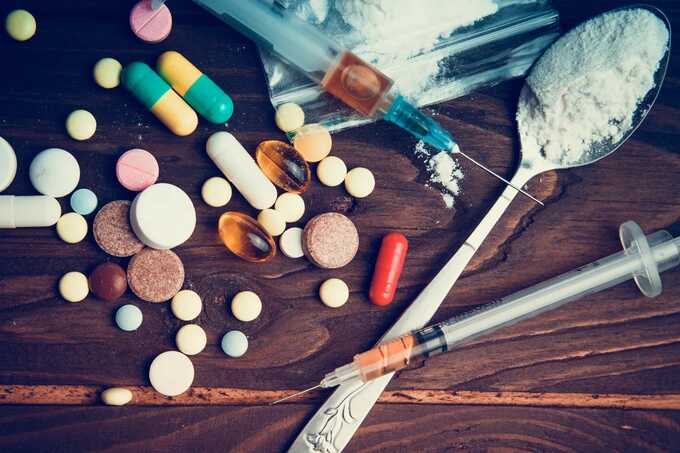UK government warned to change drug policy or face increased poisoning deaths

Experts call for consumption rooms and wider testing of substances, as number of people dying hits new high
Experts in drug addiction have warned the government must take a different approach towards illegal substance use, or risk an increasing number of deaths from drug poisonings.
Data published by the Office for National Statistics last week showed that the number of people dying as a result of drug poisoning had reached the highest level on record.
There were 5,448 deaths in 2023, an increase of more than 11% since 2022, the previous highest year on record, with nearly half of those deaths attributable to opioids. The areas hit worst were north-east and north-west England and Wales.
Prof Fiona Measham, chair in criminology at Liverpool University and founder of The Loop, a national drug testing organisation, believes that deaths will continue to rise until open testing of drugs becomes more normalised.
“It has become quite clear that we can’t just ban things, because the drugs we ban just get replaced with stronger and stronger drugs,” she said. “We need to think outside the box.”
On-site testing of drugs is possible in the UK but organisations that wish to do so must obtain a licence from the Home Office. Festival organisers have previously complained that doing so can take months and cost thousands of pounds.
The Loop runs drug testing services across the country including at festivals such as Parklife, who were told to get a new licence at short notice last year. The group also opened England’s first regular drug testing service in Bristol earlier this year, and Measham hopes that the positive effects seen there can be emulated in other cities where drug misuse is rife.
“I would argue it should, and hope it will, be rolled out in other cities,” Measham said. “I’ve lived in Manchester for over 30 years, I work in Liverpool and I hope these are some of the cities which pick up drug testing because these are some of the places affected most by drug-related deaths.”
The recent rise in opioid deaths has been attributed in part to the increased prevalence of synthetic opioids, which have become more widespread on the streets.
Synthetic opioids are far stronger than regular opioids, with increased risks of an overdose. The synthetic opioid nitazene has been found in heroin, amphetamines and in vapes, with children in Middlesbrough needing treatment with the opioid antagonist naloxone after using a black market vape earlier this year.
The north-east as a whole had the highest rate of drug-related deaths out of all the English regions and Wales, according to last week’s data.
George Charlton, a Durham-based consultant who works in addiction support, says that despite evidence that an empathetic approach to drug use has worked abroad, the UK remains resistant.
“We know that there’s 20 countries around the world that use drug consumption rooms, and that there hasn’t been a single death in one of those rooms,” he said. “People go in there to use all sorts in a safe way, with medical staff on hand. If we know something works, why aren’t we doing it? It blows my mind that we know what the solutions are but we don’t do them.”
In January, a Home Office spokesperson for the Conservative government said: “We do not support the introduction of drug consumption rooms in England and Wales, due to significant concerns they risk encouraging drug use.”
Charlton, a former user who says his life has been saved from overdoses multiple times, believes the stigma towards users makes it harder for them to get professional help.
“We’ve been conditioned for so long to believe these people are scum of the earth but they’re not – they’re somebody’s son, somebody’s daughter. Everyone is somebody’s somebody.”
A spokesperson for the current government said: “Drug-related deaths are tragically at record highs and this new government is committed to gripping this problem. We are also highly alert to the threat from emerging synthetic drugs.”
“We will work across health, policing and wider public services to drive down drug use, including synthetic opioids, and make our streets safer.”
Read more similar news:
Comments:
comments powered by Disqus

































